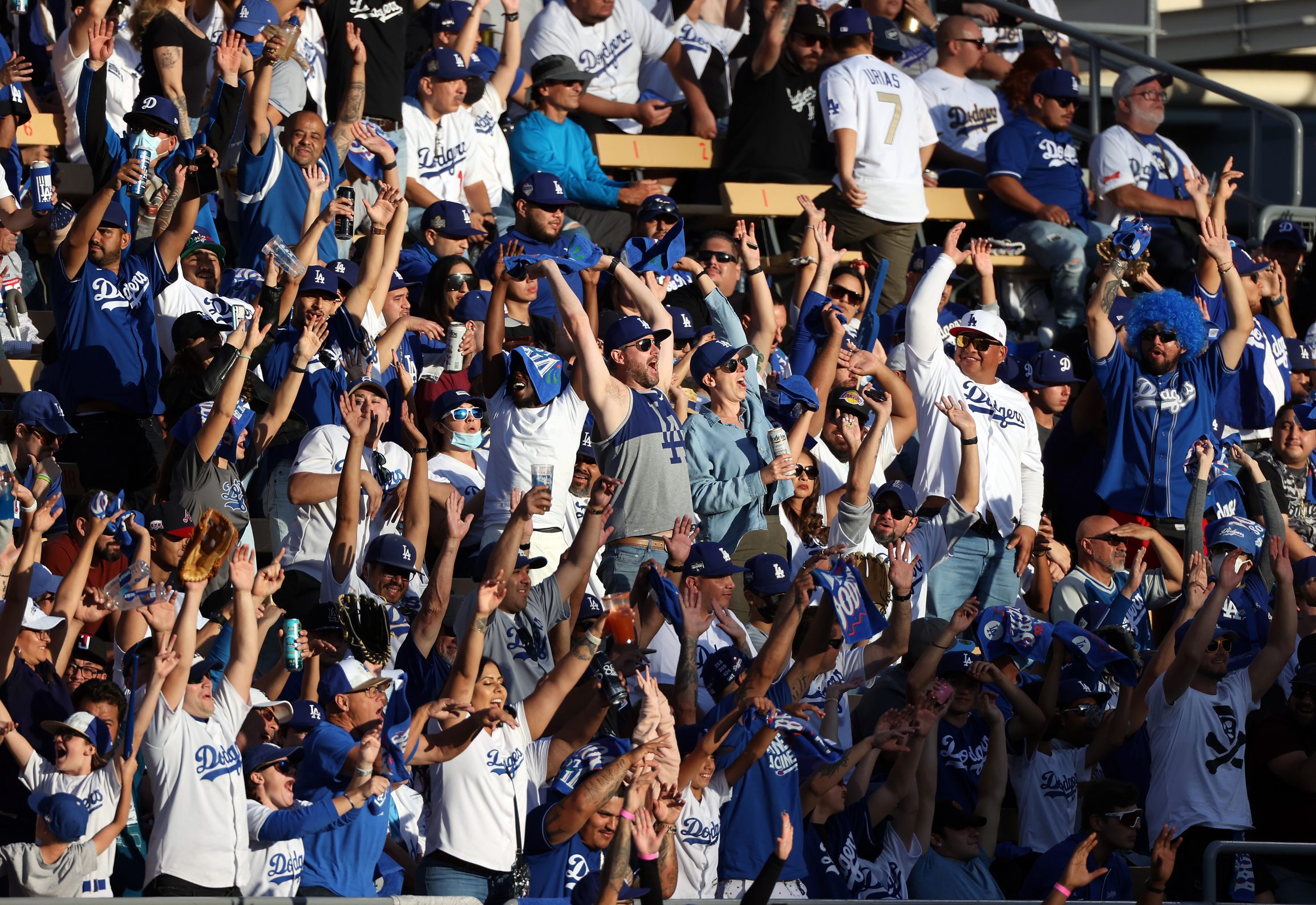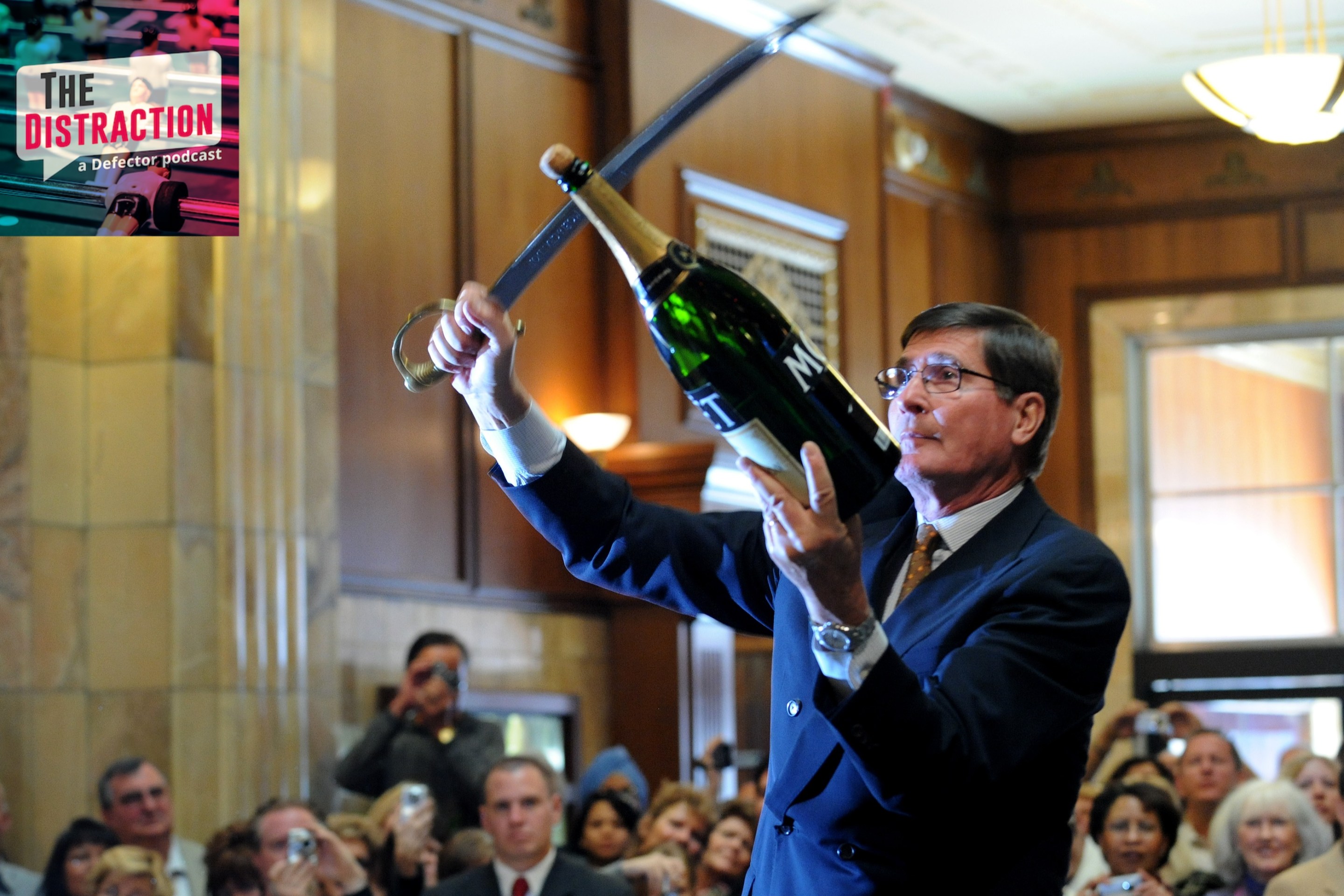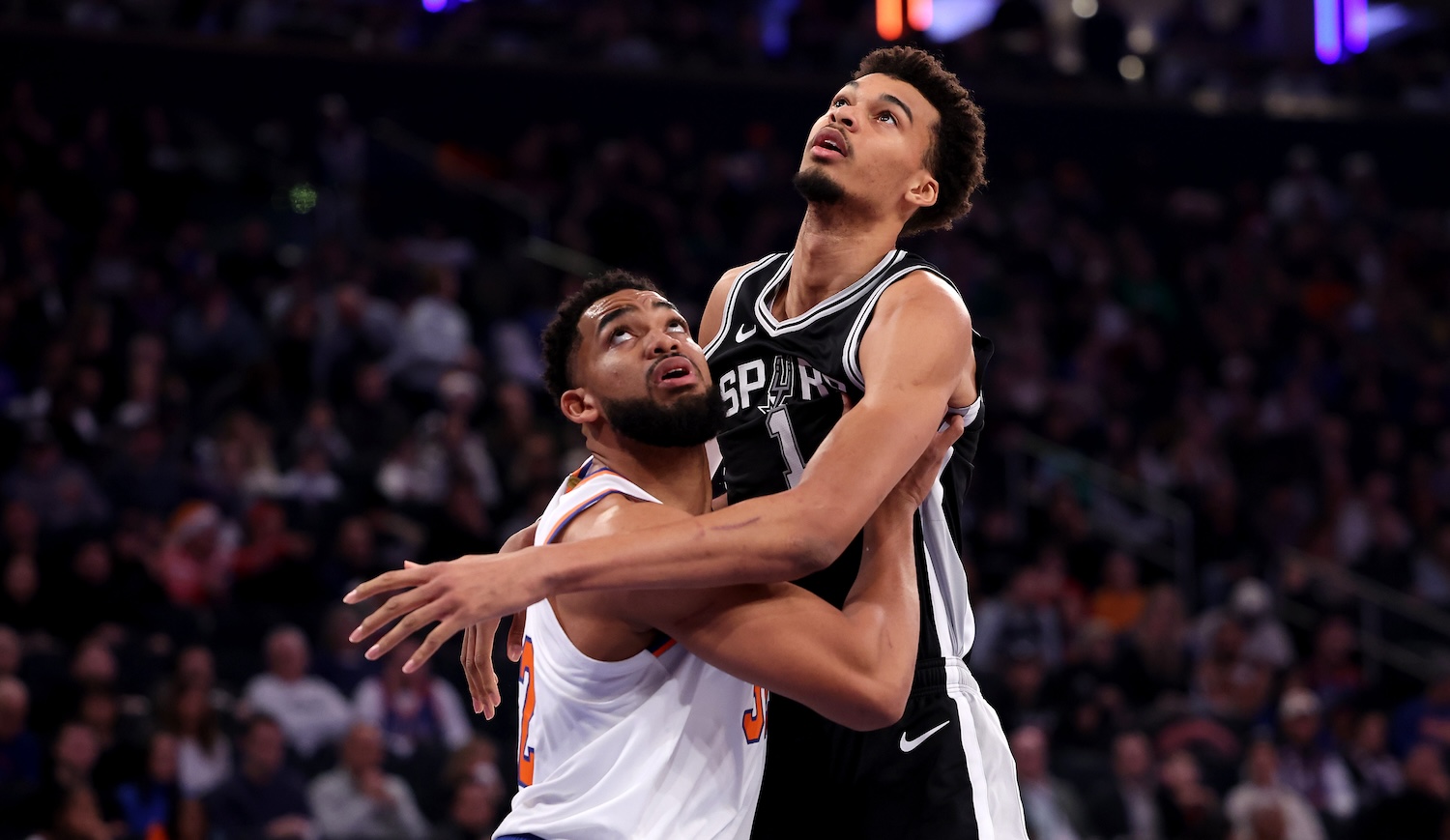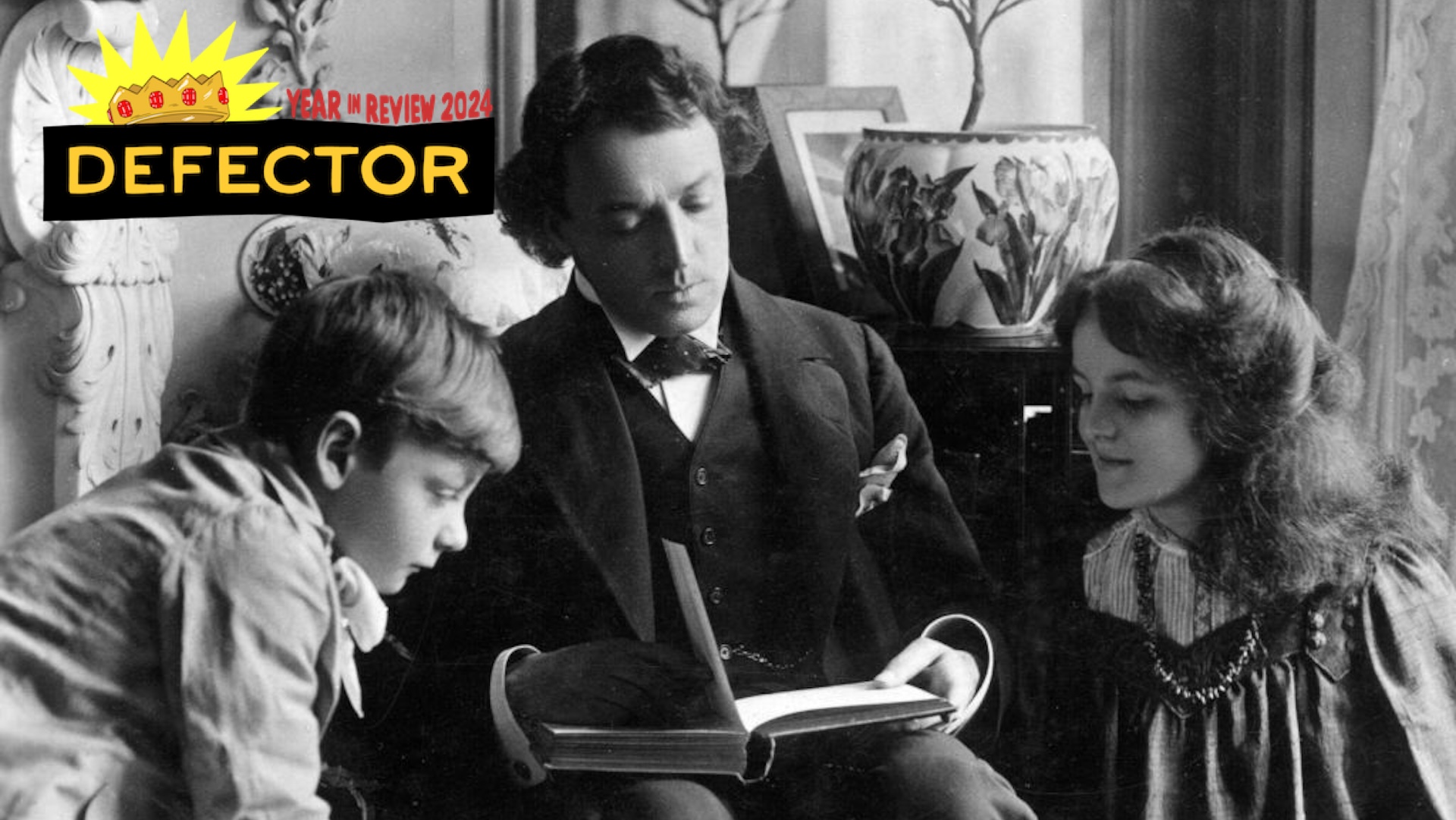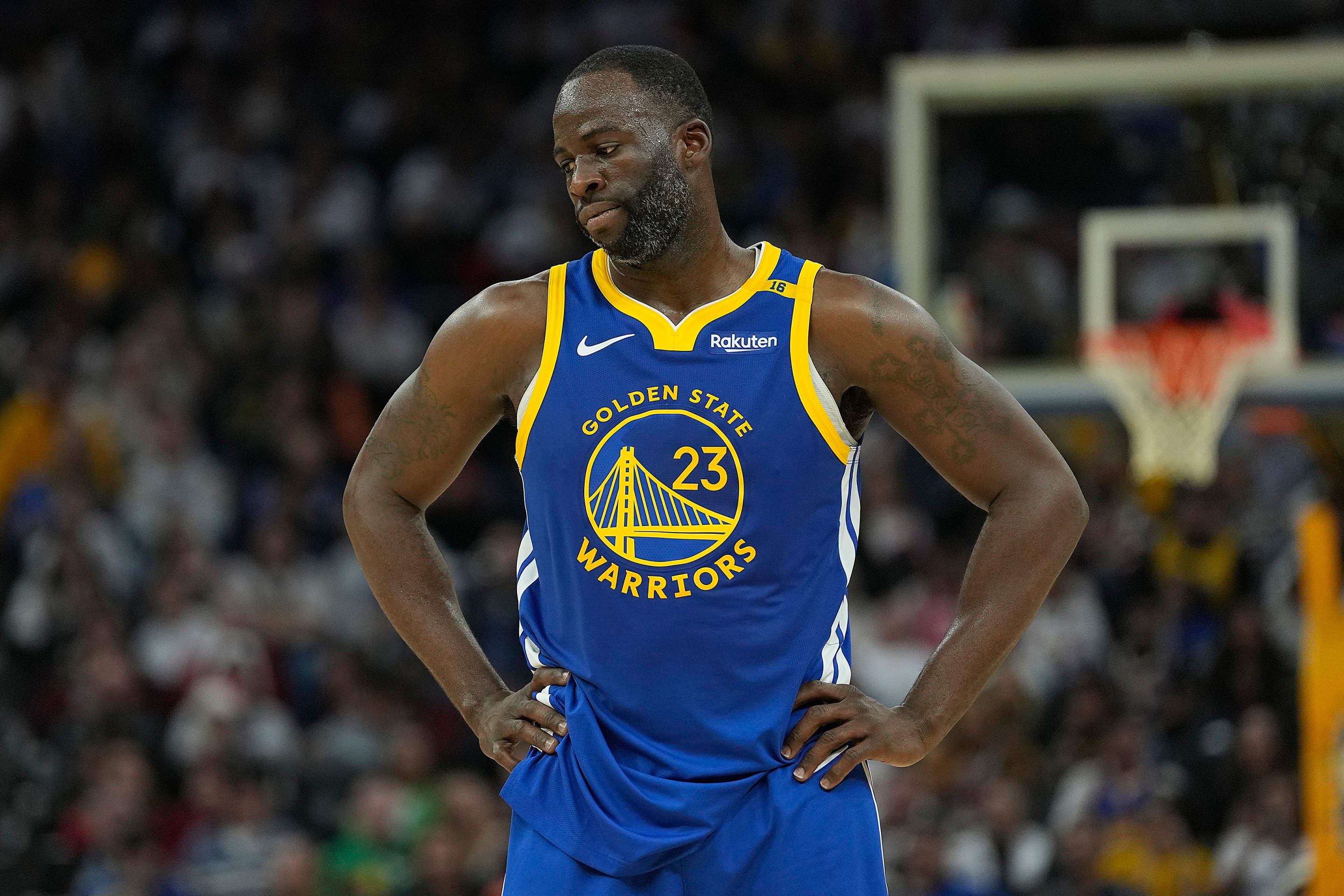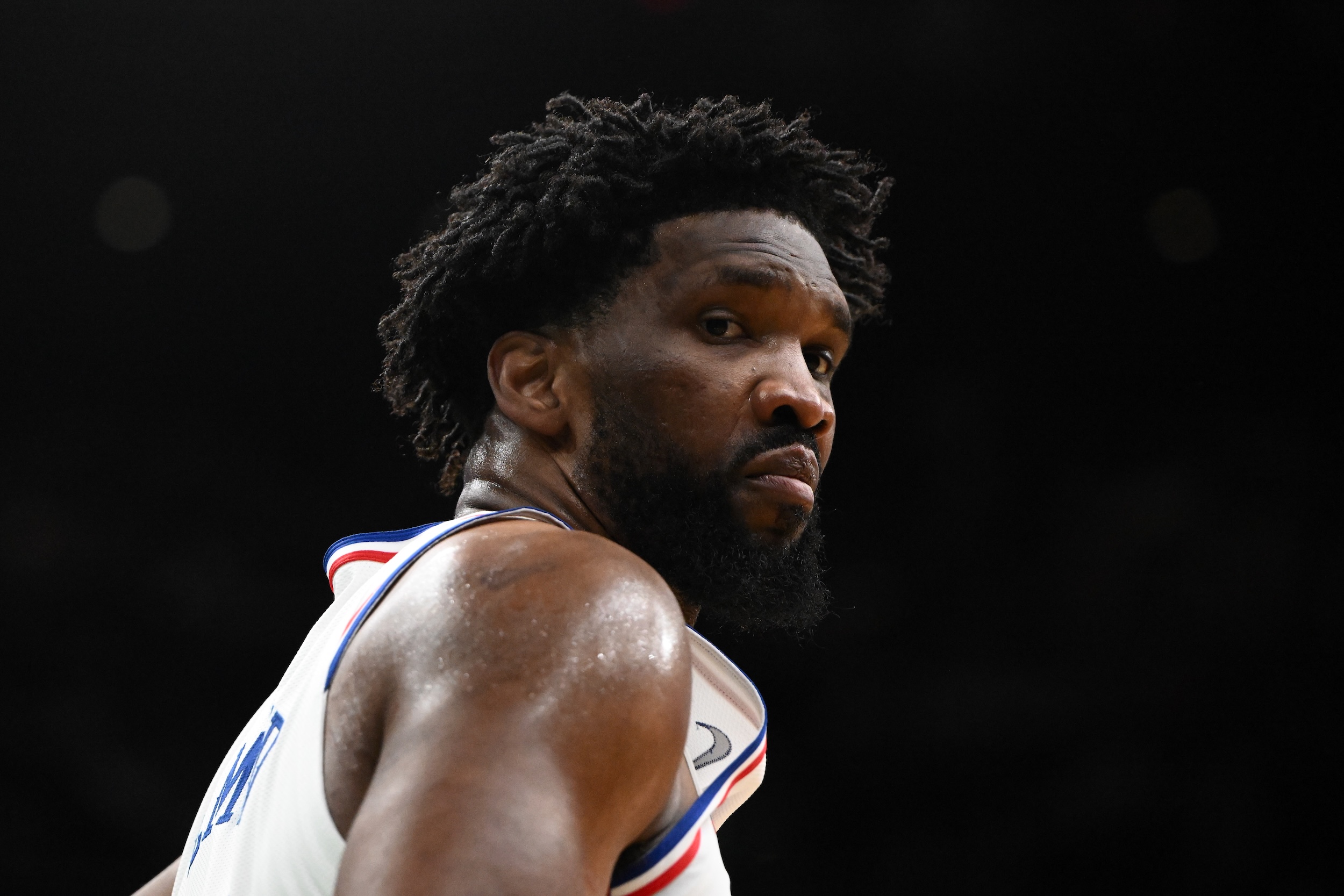On February 22, amid a lockout instated by MLB owners in a transparently ham-fisted attempt to force the union’s hand in labor negotiations, a group calling itself the National Fans Union published a full-page open letter to baseball commissioner Rob Manfred in the Milwaukee Journal Sentinel.
“Fans don't need one-way declarations about your cancellation of the sport we love,” the letter read, referring to a letter Manfred had written in which he attempted to blame the MLB Players Association for the lockout. “If you're going to collectively bargain over how to best divvy up our money, what we really want is to be heard and respected. We want a seat at the table.”
Without us, decisions will be made with only the billionaire owners and millionaire players in mind: not the fans whose support makes the entire enterprise possible. With us, MLB has an opportunity to change the conversation and turn this labor dispute into an historic “calling in” of the group most often disregarded. It's time for fans to be part of the conversation over how our dollars should be spent, and how our favorite pastimes treat us. To all fans of MLB or professional sports who agree that fans have been ignored for too long, please join us. Our strength lies in our numbers. It's time for fans to be more than spectators.
The letter asked fans to join the union via its website and concluded with a rallying cry: “As individuals, we are powerless to affect change, but together, we can become the most powerful organization in all of professional sports.”
It was almost quaint, this Third Way approach to a standard contract negotiation between labor and capital. The plea to remember the supposed real losers recalled decades of flaccid grousing from fans whenever collective bargaining interrupted their favorite sport. But mostly it was confusing. Who was behind this group? Did the NFU want a literal seat at the bargaining table? What exactly would it want the league to hear and respect? Most pressingly, where did it stand on the lockout? (The confusion over the NFU hatched some conspiracy theories, with some on Twitter suggesting the effort was an email-gathering scheme or even an MLB psyop.)
It seemed that this idea for a fans union was, at the least, missing leverage. Why would MLB willingly let its customers, who vote with their wallets, be a part of any top-level conversation? Beyond that, casting players and owners as two sides of the same selfish coin—“billionaire owners and millionaire players”—only serves to obscure the real power dynamics at play. So what else might a fan union look like? One that throws its lot in not only with players—the people without whose talent and work there would be no baseball—but also with the minor leaguers and stadiums workers and team employees is perhaps one that has a chance of advocating effectively. Imagine a millions-strong fan union that organizes, for example, to lobby Congress to revoke MLB’s antitrust exemption. Or stages protests against taxpayer-funded stadiums. Or mobilizes alongside stadium workers or cheerleaders to demand fair pay and safe working conditions. With concerted action, you can easily imagine a scenario in which a bloc of fans withholds its money to punish front offices for tanking. A fan union that helps itself by helping others is one that could last. A fan union that doesn’t has very limited leverage.
There is some precedent for this type of action. The Football Supporters’ Federation is an English fan union that advocates for supporter ownership, fan engagement, cheaper ticket prices, women’s football, anti-racism in football, and good governance. In 2016, the FSF successfully reduced the cost of a third of all Premier league match tickets for the season. Fan groups across European soccer have protested high ticket prices by walking out and displaying banners during games. Memorably, in 2016, Borussia Dortmund supporters threw tennis balls in the field for the first 20 minutes of a game in protest of rising ticket costs. A frustratingly American lack of class solidarity and labor consciousness makes it hard to imagine this happening at a national level here, but smaller-scale victories, like fans successfully preventing the Columbus Crew from leaving town, and changes in media practices, like smarter coverage of sports labor strife, suggest there’s at least some reason to believe the Overton window is shifting.
In the end, what’s good for the players is good for the fan. What’s good for the players and the fans, however, is often not good for the team owners. As Craig Calcaterra notes in his upcoming book Rethinking Fandom: How to Beat the Sports-Industrial Complex at Its Own Game, team owners and leagues rake in massive amounts of money from TV money and sponsorship deals. Money that comes directly from fans isn’t as important as it used to be, and thus doing things that keep ticket sales flowing—like spending money on top players—becomes almost optional. The most profitable thing owners can do now is to keep salaries low. Calcaterra explains how this has changed over time:
As a result of athletes unionizing and, subsequently, going on strike or withstanding lockouts, their lot has quite obviously improved. Athletes have, however, seen diminishing returns over time, especially compared to the massive revenue increases team owners have realized, and their share of their sports’ revenues is now lower, proportionately speaking, than it was back in the 1990s. This is mostly because owners have changed tactics. Rather than trying to crush the unions and impose salary controls in one fell swoop, they have slowly chipped away at the gains achieved by the players. And they’ve done a very good job of it.
In baseball, they have done so by instituting a revenue sharing system and a robust “luxury tax” that penalizes teams for going over certain payroll levels which discourage spending on salaries while not, at least nominally, changing the deal for players. They have likewise imposed a number of restrictions on what can be spent on draftees and international amateur free agents, neither of whom are represented by the union. They have similarly made it a priority to pay as little as possible to minor league players, going so far as to lobby Congress to classify minor league ballplayers as “seasonal employees” for labor law purposes, allowing them to be paid sub-minimum-wage salaries. All of these moves against lower-paid, non-unionized players trickle up, as it were, to the major league level where increasingly desperate young players find themselves more eager to sign team-friendly deals early in their careers rather than hold out until they can exercise greater bargaining power as veterans. There is a clear sense in baseball that many teams would rather save money on player salaries than win games. Indeed, until 2019, Major League Baseball gave out an actual championship belt to the executives of the franchise that paid the least amount to players in salary arbitration proceedings. The practice, which had been a secret among MLB executives, ceased after it was publicly reported.
In 1972, legendary labor negotiator Marvin Miller led the relatively young and untested MLBPA in a strike in an effort to win pension payments and salary arbitration. After only 12 days, the owners folded on both issues. The strike proved the players union had real power to negotiate their working conditions in the business of baseball, but the backlash to the strike, happening amid general anti-union sentiment in the U.S., helped create an enduring rhetorical trick that continues to pit fans against players—a proto “millionaires vs. billionaires” framing. Baseball players already made enough money, far more than the average fan anyhow, and so regardless of how much money the players’ labor made for team owners, they were the greedy ones for asking for a more equitable share of the revenue they created.
John Shepherd, for example, told the Cincinnati Enquirer on April 2, 1972 that the players’ strike "just shouldn't be."
Shepherd, an assembler at the General Electric plant in Evendale, said he goes to see the Reds "quite often" at Riverfront Stadium, and said he will miss the trips if the strike continues. He said the players should not have struck. "They make enough money now," he said.
Paducah Sun columnist Jerry Atkin echoed this idea on April 4:
General reactions across the country, as reported by the Associated Press through this paper and others, give most of the support to the owners in the current squabble. The reason, basically, is that they feel baseball players are already overpaid, and that anyone who gets paid for playing the game shouldn't complain a whole lot about the money received. ... Whatever happened to the idea that others count in this case, the fans when a decision is to be made. ... Wouldn't it be something if the nation's baseball fans decided to "strike" against the majors by not going to the games.
A headline from the April 23 issue of the Bellingham Herald read “Letters keep pouring in from fans on baseball strike.” One wrote, “I think it’s a sad and sorry situation when a bunch of overfed overpaid would-be athletes engage in collective bargaining deals in order to obtain something to which they are not entitled!”
There’s not much history of fan associations in the U.S. In 2009, lobbyist and former Clinton minion David Goodfriend founded the Sports Fan Coalition, which says it is “dedicated to protecting the rights and interests of sports fans nationwide.” Per its website, its board of directors includes former USWNT player Hope Solo and venture capitalist Mark Walsh, and it is currently focused on protecting fans from sports gambling. Other efforts at fan unions have had even less impact. A press release from 2006 announced the creation of a Pro Sports Fan Union. It stated it wanted to “restore Professional Sports to their original state.” The press release said:
The Union will not quit until the games once again belong to the fans and the cities they represent. The players and owners will hear the Fans on all matters concerning the games. Once the Fans have reclaimed pro sports the Fan Union will remain active to insure that the Fans never lose their place in Professional Sports again.”
It appears to have never been heard from again.
In 1982, amid an NFL strike, Marilyn Barnewell, a financial consultant for several major banks, started the NFL Fan Union. A brief write-up in the New York Times described her dramatic announcement: “Marilyn Barnewall, upset by the pro football strike, stood on the 50-yard line at Mile High Stadium in Denver yesterday and announced the formation of the National Football League Fans Union. 'This is serious,' she said. 'This isn't a gimmick. The fans are the big losers in this strike.'"
The founders of the National Fans Union are serious, too. Last week, I spoke to two of 12 NFU founders, Dan and John, about their effort. They requested to go by only their first names because they said they feared possible future retribution from sports leagues. Dan, a professor based in Southern California, told me that the idea for the fan union was hatched more than a decade ago in New York City, during a work stoppage in another professional sport. Over the years, they said, the idea of people coming together to advocate for more of a say over the teams and leagues they support as fans and as tax-payers has gained momentum. When MLB held up bargaining in February, the group put their plan into motion, publishing the letter in the newspaper and launching a website and social media channels.
“We didn't expect much,” Dan said. “But we were kind of overwhelmed by the reaction and a lot of positivity as you can probably imagine. Online, a fair amount of negativity as well.”
Both Dan and John said they thought the players deserved a more equitable deal in general and considered themselves pro-player. But the tone of their first letter, which strenuously avoided playing favorites, was strategic.
“We want to kind of try to strike a little bit of a more neutral tone, because I think it works to be an effective player in this whole thing,” said John, a coder based in Wisconsin. “We can't just come out clearly anti-league or anti-owner, you know, I think that coming in antagonistic like that does not serve the fans interests.”
Both Dan and John were wary of speaking for the group, which they said is still coalescing; they didn’t even presume to speak for each other, though they are largely on the same page. They didn’t expect to actually be a part of bargaining but suggested there were other avenues for cooperative decision-making. They were concerned about being seen as shills for the players. They worried about sounding naive.
“If we come in fully aggressive then this possibility for compromise is significantly diminished, and I think that is where we would like to draw power from,” John said. “To be able to just show numbers and show votes, which we are working on a process for, and we can just bring that to the league and say look, this is in your best interest to do this.”
The group’s ideas feature largely symbolic ways to “enhance fans’ connectivity” to their favorite sport, including cracking down on secondary ticket markets to make a certain number of tickets more affordable, and, to discourage tanking, instituting a million-dollar fine for the team that finishes in last place, which would then be distributed among team’s fanbase and community. Dan, especially, exudes earnestness and idealism, so much so that it was difficult to tell if he sees these longshot proposals as realistic or just brainstorming. I got the sense that he thought no idea is a bad idea. After all, an immediate goal of the NFU is to create a democratic forum for fans to discuss problems and potential solutions.
In the course of our conversation, we talked about the fan protests that killed soccer’s Super League, the natural alliance between players and fans against capital, and what a broader version of solidarity in the sports industry might look like. It was a lively, generative chat. And while it was clear to me that the NFU, at this point, seems to envision itself as a sensible entity whose polite approach could capture the willing ears of sports leagues, Dan said he knows counting on the goodness of owners’ hearts is a fool’s errand.
“I just wonder the degree to which they would ever be willing to listen to concepts that are born out of our group,” Dan said, thinking aloud, “unless they're accompanied by this strength that we do not yet have. But maybe in order to get that strength, we have to be more declarative in where we stand.”
On Wednesday, the National Fans Union ran a second letter in the Journal Sentinel. It was declarative.
“Commissioner Robert D. Manfred,” the letter began. “We, the fans, do hereby formally request that you do your damn job.” It continued from there:
Stop playing golf and let the players play ball. Because of the greed of the league and owners that you represent, there are currently thousands of people—stadium workers, team employees, and yes, young players—whose livelihoods are hanging in limbo because you have canceled games in an attempt to bully the players' union. It is absurd and disingenuous to claim that team ownership isn't a profitable endeavor. As you well know, MLB is one of the few businesses in this country exempt from federal antitrust laws. Let's be clear: if the owners who appointed you can't make a profit in an actual government-sanctioned monopoly, they are bad businessmen. Maybe we should be talking about rescuing the teams from inept management instead of trying to deny the players their reasonable requests.
If, on the other hand, MLB and the owners are toying with workers' livelihoods and fans' loyalties so as to squeeze another couple million out of the game, perhaps we can recommend an alternative investment. Take a look at the futures market for pitchforks, tar, and feathers. We hear there may be a sharp increase in demand in the coming days.
Sincerely, The (rapidly growing) National Fans Union
The next day, fatigue won out, a deal was reached, and baseball was back on. Did the righteous NFU letter do the trick? No. Or at least it seems highly unlikely, given that the letter got almost no traction (at the time of this writing it had only three likes on Twitter). But the NFU, as Dan told me on Friday morning, was “having fun with it.”
Congratulations @MLB and the @MLBPA. We're obviously not taking *full* credit for ending the MLB work stoppage, but we'll consider it a win.
— National Fans Union (@yourNFU) March 10, 2022
There's a lot of work to do building fan power so that we can prevent these kinds of disasters in the future. This is just the beginning.
Does this mean the NFU may shift toward more open antagonism of team owners and exploitative league structures? Dan demurred. “Our take is not to be antagonistic unless the situation calls for it,” he said. But if not now, then when?
